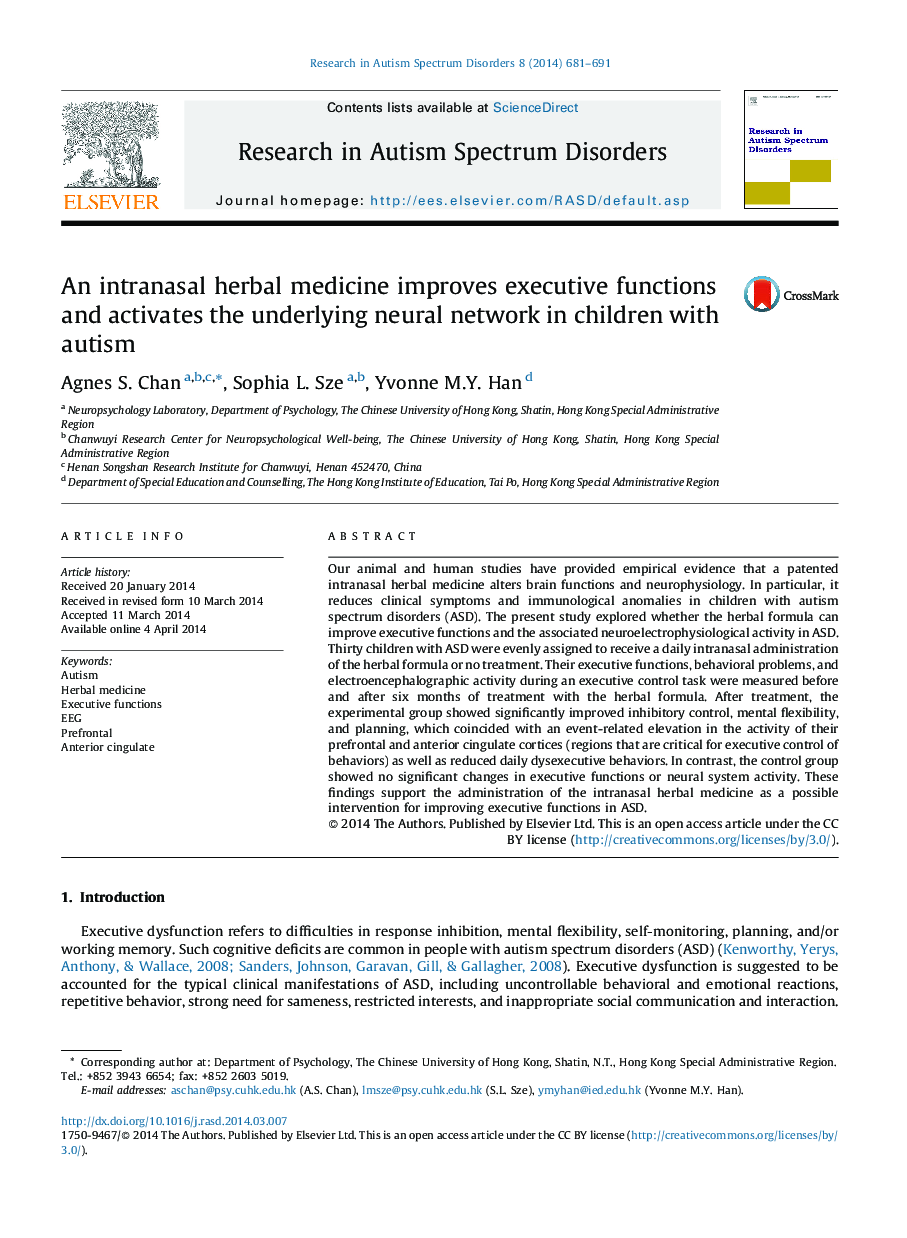| Article ID | Journal | Published Year | Pages | File Type |
|---|---|---|---|---|
| 10317135 | Research in Autism Spectrum Disorders | 2014 | 11 Pages |
Abstract
Our animal and human studies have provided empirical evidence that a patented intranasal herbal medicine alters brain functions and neurophysiology. In particular, it reduces clinical symptoms and immunological anomalies in children with autism spectrum disorders (ASD). The present study explored whether the herbal formula can improve executive functions and the associated neuroelectrophysiological activity in ASD. Thirty children with ASD were evenly assigned to receive a daily intranasal administration of the herbal formula or no treatment. Their executive functions, behavioral problems, and electroencephalographic activity during an executive control task were measured before and after six months of treatment with the herbal formula. After treatment, the experimental group showed significantly improved inhibitory control, mental flexibility, and planning, which coincided with an event-related elevation in the activity of their prefrontal and anterior cingulate cortices (regions that are critical for executive control of behaviors) as well as reduced daily dysexecutive behaviors. In contrast, the control group showed no significant changes in executive functions or neural system activity. These findings support the administration of the intranasal herbal medicine as a possible intervention for improving executive functions in ASD.
Related Topics
Life Sciences
Neuroscience
Behavioral Neuroscience
Authors
Agnes S. Chan, Sophia L. Sze, Yvonne M.Y. Han,
